#The Encyclopedia of Natural Remedies
Text
The Encyclopedia of Natural Remedies
A Lifesaver for My Home Health Arsenal: A Review of "The Encyclopedia of Natural Remedies Digital - Ebooks"
As someone who leans towards natural solutions whenever possible, I was thrilled to discover "The Encyclopedia of Natural Remedies Digital - Ebooks." This comprehensive resource has become a mainstay in my home health toolkit, offering a wealth of information on natural remedies for a wide range of ailments.
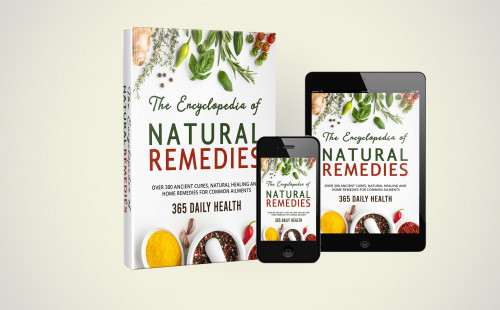
A Treasure Trove of Natural Solutions:
The first thing that struck me about this digital encyclopedia was its sheer scope. It covers an impressive array of conditions, from common colds and headaches to digestive troubles and sleep disturbances. Each entry provides a clear explanation of the ailment, including its causes and symptoms. But what truly sets this resource apart is its focus on natural remedies.
For every condition, the encyclopedia offers a variety of natural approaches, including herbal remedies, dietary changes, and lifestyle modifications. There are even sections on aromatherapy and acupressure, providing a holistic approach to well-being. I've found myself particularly drawn to the detailed information on herbal remedies. The encyclopedia provides clear instructions on how to use specific herbs, either in teas, tinctures, or compresses.
Easy to Use and Navigate:
The digital format of this encyclopedia makes it incredibly user-friendly. The search function allows me to quickly find information on specific ailments, while the well-organized layout ensures I can easily navigate between different sections. The text is clear and concise, and even complex medical terminology is explained in an understandable way.
I also appreciate the inclusion of pictures and illustrations throughout the encyclopedia. These visuals help to identify different herbs and plants, making it easier to follow the instructions for preparing natural remedies.
Empowering and Effective:
Perhaps the greatest benefit I've experienced from using this encyclopedia is the sense of empowerment it provides. Having access to a wealth of natural remedies allows me to take a proactive approach to my health and well-being. For minor ailments, I can often find relief using the natural solutions outlined in the encyclopedia, saving myself a trip to the doctor and avoiding potentially harsh medications.
Of course, the encyclopedia always emphasizes the importance of consulting a healthcare professional for serious medical conditions. However, for everyday health concerns, it empowers me to explore natural options and make informed decisions about my health.
A Highly Recommended Resource:
Overall, "The Encyclopedia of Natural Remedies Digital - Ebooks" is an invaluable resource for anyone interested in exploring natural approaches to health. Its comprehensive content, user-friendly format, and focus on empowerment make it a must-have for any home health library. Whether you're a seasoned natural remedy user or just starting out, this encyclopedia provides a wealth of information and guidance on your journey towards a healthier you.
#The Encyclopedia of Natural Remedies#trending on tumblr#health and wellness#health & fitness#popularblog#natural products#supplements#natural remedies#healthylifestyle#healthcare
0 notes
Text
A Treasure Trove of Natural Wellness: My Review of The Encyclopedia of Natural Remedies
In today's fast-paced world, prioritizing natural approaches to wellness has become increasingly important for me. That's why I was thrilled to discover The Encyclopedia of Natural Remedies, a comprehensive digital guide to using natural remedies for a variety of ailments. This digital resource has become my go-to reference for exploring alternative solutions and taking a more proactive role in my health!
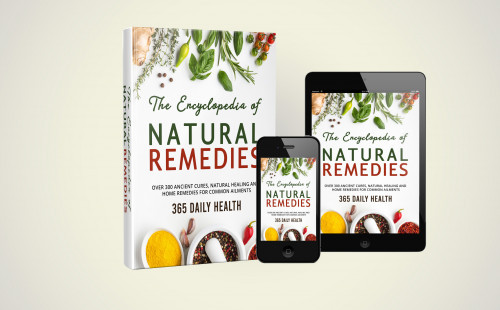
A Wealth of Information at Your Fingertips
The Encyclopedia of Natural Remedies isn't your average recipe book. It's a comprehensive digital library brimming with information on natural remedies for a vast array of conditions. From common ailments like headaches and coughs to more specific concerns like stress management and sleep problems, the encyclopedia offers a wealth of knowledge. The information is well-organized and easy to navigate, with detailed entries on each remedy, including its historical use, potential benefits, and safe preparation methods. This vast resource allows me to explore natural solutions for a wide range of concerns, empowering me to make informed choices about my health and well-being.
Learning from the Wisdom of Tradition
The encyclopedia delves deeper than simply listing remedies. It explores the historical and cultural context of various natural healing practices. This deeper understanding allows me to appreciate the rich traditions behind each remedy and fosters a sense of connection to time-tested practices. Additionally, the encyclopedia highlights the scientific basis for many natural remedies, explaining the active ingredients in plants and their potential effects on the body. This blend of traditional wisdom and scientific knowledge instills confidence in the effectiveness of natural approaches to health.
Empowering Self-Care and Wellness
The Encyclopedia of Natural Remedies empowers me to take a more proactive role in my well-being. By providing clear instructions on preparing herbal teas, tinctures, and compresses, the encyclopedia allows me to create my own natural remedies at home. This not only saves money on over-the-counter medications but also fosters a sense of self-reliance and control over my health journey. The encyclopedia also emphasizes the importance of a holistic approach, encouraging healthy lifestyle choices alongside herbal remedies for optimal wellness.
A User-Friendly Digital Resource
As a digital product, The Encyclopedia of Natural Remedies offers convenient access to a wealth of information. The ebook format allows me to download it to any electronic device, making it readily available for reference whenever I need it. The encyclopedia boasts a user-friendly design with clear headings, bullet points, and helpful illustrations. This makes it easy to find specific information quickly and efficiently, ensuring a smooth and enjoyable browsing experience.
A Note on Consulting a Healthcare Professional
It's important to remember that The Encyclopedia of Natural Remedies is not a substitute for professional medical advice. While the encyclopedia offers valuable information on natural remedies, it's always best to consult with a qualified healthcare professional before using any new herbal treatment, especially if you have a pre-existing medical condition or are taking medications.
In Conclusion: An Invaluable Resource for Natural Wellness Seekers
If you're interested in exploring natural remedies and taking a more proactive approach to your health, The Encyclopedia of Natural Remedies is an invaluable resource to consider. The encyclopedia's comprehensive information, focus on traditional wisdom and scientific evidence, and user-friendly format have empowered me to embrace natural approaches to wellness with confidence. Remember, consult your doctor before starting any new herbal remedies, but for me, The Encyclopedia of Natural Remedies has opened a world of possibilities for a healthier and more empowered me.
#A Treasure Trove of Natural Wellness#Encyclopedia of Natural Remedies#Healthcare Professional#A Note on Consulting
0 notes
Photo
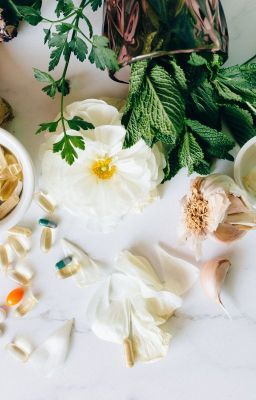
The encyclopedia of natural remedies (on Wattpad) https://www.wattpad.com/1322874371-the-encyclopedia-of-natural-remedies The Encyclopedia of Natural Remedies is a comprehensive guidebook that provides information on natural remedies for various health conditions. It includes descriptions of herbs, vitamins, minerals, and other natural supplements, as well as their uses and potential benefits. The book also covers topics such as homeopathy, aromatherapy, and traditional Chinese medicine, providing readers with a broad range of natural healing modalities to choose from. The Encyclopedia of Natural Remedies is intended to empower readers to take control of their health and well-being by providing them with a wealth of knowledge on natural remedies that can be used to support the body's natural healing processes. It is a valuable resource for anyone interested in natural health and alternative medicine.
#365#brand#daily#encyclopedia#freddie#health#masaki#natural#new#remedies#remedies-#general-fiction#books#wattpad#amreading
1 note
·
View note
Link

Going so far as to create opioid drugs that ‘hook’ patients in... turning
them into hopeless addicts, dependent on their pills.
And because they have a monopoly over the drugs, and patents that
give them exclusive rights to production...
0 notes
Text
The Encyclopedia of Natural Remedies- Brand New
learn more about Encyclopedia of Natural
BREAKING NEWS:
Shocking Big Pharma Scam Exposed¹…They’ve bought over the doctors, hospitals, and pharmacies…AND Patients pay the bill with their HEALTH and SAVINGS.
Discover How You Can Escape This Corrupt Healthcare System… With ‘Suppressed Medicine’ That Has Remedied Millions From Japan, Indonesia, China and The Middle East.

0 notes
Note
(Asking on anon bc my ghost blog is my side blog LOL) but I was looking at your post about Copia learning ballet when he was younger and I LOVE THAT SO MUCH. Do you think any of the other Papa's had any other kind of artistic hobbies? I like to think Primo may have really enjoyed painting, when he had the time [from sacred-coffin]
Hiiii! Glad you liked Copia knowing ballet, I'm glad my years of suffering through the Nutcracker Ballet has come in handy (my cousin was a ballerina). But yeah, I took your question to my council (my two wives), and we all came up with several ideas for each of the other Emeritus brothers! Not all of these are exactly artistic, just kinda became general hobbies or things the papas liked to do.
Primo
I am one of those people that does enjoy Primo as a gardener, but not in the traditional sense. His knowledge pertains mostly to poisonous and carnivorous plants, but he also does know how to make a lot of natural remedies because he just finds herbal medicine practices fascinating. Although, only some members of the Ministry actually trust him and his tinctures.
Primo has “accidentally” poisoned a Bishop once. When asked if he knew that he put something he wasn’t supposed to into the bottle, he said “oh Satanas, my vision must be going”. He definitely did on purpose cause the Bishop took a nasty tone with him once.
In his personal book collection, I feel like he has a lot of vintage plant encyclopedias and anything like that for his garden obsession.
Definitely a purveyor of classical music compared to the other Papas, but in the sense he prefers scores that are evil in vibes. Also, definitely can play the violin. He’s not like, perfect at playing, but good enough not to annoy those that can hear it.
I would love for him to have an electric violin, but Primo is the type to always prefer classic string instruments over electric ones. Definitely has like an ebony stained wood violin.
Primo also has a fascination with insects, probably goes along with his plant fascination. He’s definitely into insect pinning and has frames filled with different moths, butterflies, beetles, and downright terrifying insects within his office.
Secondo
This man is a drinks connoisseur, in several ways. Secondo is big into coffee and alcohol. He’s never been the biggest morning person and coffee has basically been his lifeline since he became of Priest in the Ministry. Has all the shit needed for steaming milk and making espresso and all the jazz. I feel like he can even do that milk art and shit, but only spooky or sexual designs. For alcohol, he’s big into mixology. Grade A mixologist here.
Within the Chapter House, where most of the high ranked and important people of the Ministry have their rooms, some of their offices, and big important meetings, there’s also like recreational rooms for them. One of them has basically been claimed by the Emeritus bro trio for their game nights (Uno and other shit), because it has the bar that Secondo has stocked himself. He always mixes the drinks for himself and his brothers.
When he was Papa, his Papal office also had a personal bar.
I feel like this man is big into suits, reminds me of the way NBC’s Hannibal was big into suit fashion. He knows how to look refined and exactly how to pair a suit to tie and pocket square for every occasion. He’s had an extensive closet ever since he was younger. As Papa, he took every chance he could to be out of his Papal robes and Mitre and be in one of his many suits.
In terms of an instrument he knows, I’m not exactly certain, but I’m feeling a big instrument, maybe a cello, string bass, or something else, but its gotta be a deep and thuddy instrument, but I don’t think he plays it anymore. Left it behind as he went up the ranks of the Ministry.
Terzo
This man is a certified film buff. I mean, look at all his music videos. They reference so much. It’s all 1920’s Art Deco, with German expressionism like the Cabinet of Dr. Calgiri, Faust, and Nosferatu, as well as all the early 1900s horror movies like Dracula, Frankenstein, Jekyll and Hyde, etc.
From that era of horror movies, hands down, his favorite movie is Frankenstein, and loves the Bride of Frankenstein.
Alongside that, I feel like Terzo is very into that era of fashion, considering his second stage outfit and the ghoul outfits. Also just fashion in general. Man likes fancy clothes, it’s just unfortunate Sister Imperator didn’t give his version of the Ghost Project for funding.
Another thing Terzo did when he was younger is theater. Musicals, plays, talent shows, you name it. He always loved being on stage, being the lead of the show, its what helped him be such a charismatic Papa.
I feel like his favorite production he ever stared in was Cabaret.
Terzo picked up the guitar when he was younger as well, plays it every now and again, but not as often as Primo plays his violin. (This is so sad, Terzo play Wonderwall).
Totally didn’t fall in love with both his guitarists (totally doesn’t admire their abilities to play the guitar, totally didn’t pretend to be bad at playing guitar so that they would teach him, totally not).
Also, so good at playing the kazoo.
Bonus, Papa Nihil
He picked up crocheting when he was older to try and make gifts for Sister Imperator.
Unfortunately, Copia would have to be a whole other post as there’s a lot I could say about him as he’s my bestest guy.
#bonesy talks#the band ghost#papa headcanons#papa emeritus i#papa emeritus ii#papa emeritus iii#papa nihil#papa primo#papa secondo#papa terzo
42 notes
·
View notes
Text
Pine - The Mundane and Magical 101
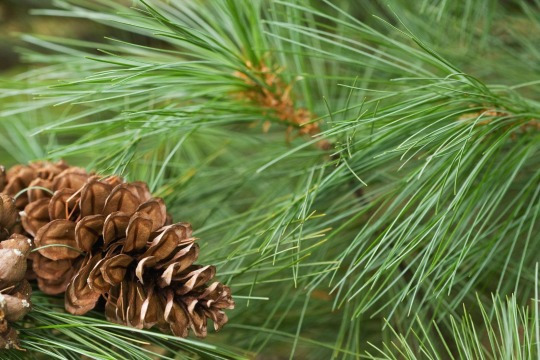
Growing up on my edge of the west coast, Pine trees have always been abundant. Specifically the Western White Pine for example.
This plant spirit is one I work with generally in the winter as this is where I personally feel it’s energy is stronger. It's a wonderful plant to work with and has been used by indigenous cultures to this land for healing. To venerate and honour this land I work with Pine.
Scientific Name: Pinus
Family: Pinaceae
Parts used: For species of Pine it varies
Planet: Mars
Element: Air
CAUTIONS: It is important to know not all species of Pine are edible. Also please note that if you have pets be cautious with Pine as it can cause irritation to the mouth and gastrointestinal issues. Which can lead to serious complications if ingested. Keep any pine needles and oils out of reach.
ALWAYS check with your local herbalist and doctor before consuming any medicinal medicine as they will be able to direct you on proper dosages. Some medications can also interact and so can some conditions with certain herbs.
Do NOT consume if pregnant and Pine may irritate the gut by creating heartburn.
IMPORTANT: Some Pine trees look very alike to other toxic plants so source responsibility and safely.
Uses in Herbalism and healing:
Internally, pine is a traditional remedy for coughs, colds, allergies, and urinary tract and sinus infections.
Topically, pine is used for infections and to lessen joint inflammation in arthritic conditions.
Uses in Magic:
Pine's correspondences are purification, protection, prosperity, healing, fertility and strength.
Pine needles scattered on the floor is said to drive away evil
When burned it can purify negativity
Needles can be burned for reversal spells or back to sender spells
Money magic
Can be used in oils, teas, incense, washes, etc. Get creative!
Makes a great purifying natural cleaner mixed with vinegar
Branches of pine above the bed is said to keep sickness away
In Japan Pine trees are venerated as sacred. Symbolizing longevity. Some place Pine above the front door to ensure lasting joy within, for the leaves are evergreen.
Recipes:
Herbal Salve for Inflammation - Makes 5 ounces
What you need
1 oz. beeswax (use carnauba wax for a vegan salve)
4 oz. Pine Pitch infused oil in Olive Oil - See my Infused Oils post to learn more
Directions
Wrap beeswax bar in an old towel. On a sturdy surface, use a hammer to break bar up into small chunks.
Place beeswax in a double boiler and gently warm over low heat until the beeswax melts.
Add herbal oils and stir over low heat until well-mixed.
Remove from heat
Quickly pour warm mixture into prepared heat safe tin(s) or cosmetic glass jar(s)
Store in a cool location for 1 to 3 years.
Sources and extra reading material:
Please remember while I provide sources, some content is my own UPG from working for years intuitively with this herbal ally. What you do not see from my sources assume it is my UPG and take what information you will. Always cross reference and research yourself. All medical knowledge will be sourced.
Books:
Cunningham's Encyclopedia of Magical Herbs (Expanded and Revised Edition) by Scott Cunningham
The Complete Herbal Tutor by Anne McIntyre
Links:
Want to check out my other posts? Here’s the Masterpost
#pine trees#pine cones#pine needles#witchcraft#witch#herbal magic#herbalism#herbalist#herbal medicine#winter solstice#witchblr#pine correspondences#protection magic
21 notes
·
View notes
Text
My Spiritual Book TBR's
This is mainly for me to have a comprehensive list but also might help others in finding books to read!
Marked ♡ means I own the book
Read
• Witchery by Juliet Diaz
• The Green Witch by Arin Murphy-Hiscock
• Witch, Please by Victoria Maxwell
Currently Reading
To Be Read
♡ The Altar Within by Juliet Diaz
♡ Plant Witchery by Juliet Diaz
♡ Encyclopedia of Spirits by Judika Illes
• Encyclopedia of Witchcraft by Judika Illes
• Encyclopedia of Mystics, Saints, & Sages by Judika Illes
• Moon Magic by Diane Ahlquist
♡ The Moon Book by Sarah Faith Gottesdiener
♡ Magical Healing by Hexe Claire
• The Long Lost Friend by John George Hohman
• Hex and Spellwork by Karl Herr
♡ Witchcraft Medicine by Claudia Müller-Ebeling, Christian Rätsch, and Wolf-Dieter Storl
• How to Study Magic by Sarah Lyons
• Love is In The Earth by Melody
• Radical Remedies by Brittany Ducham
♡ Spiritual Ecology by Multiple People (Llewellyn)
♡ A Witch's Shadow Magic Compendium by Raven Digitalis
• The Witch at The Forests Edge by Christine Grace
• Six Ways by Aidan Wachter
♡ Honoring Your Ancestors by Mallorie Vaudoise
• Year of The Witch by Temperance Alden
♡ Weave The Liminal by Laura Tempest Zakroff
♡ The Book of Candle Magic by Madame Pamita and Judika Illes
• The Triumph of the Moon by Ronald Hutton
♡ Folk Witchcraft by Roger J. Horne
♡ Wild Witchcraft by Rebecca Beyer
♡ The Spiral Dance by Starhawk
• Spells for Change by Frankie Castanea
• Utterly Wicked by Dorothy Morrison
♡ Of Blood and Bones by Kate Freuler
♡ The Little Work by Durgadas Allon Duriel
• Entering Hekates Garden by Cyndi Brannen
• Entering Hekates Cave by Cyndi Brannen
• Nordic Runes by Paul Rhys Mountfort
• The Book of Spells by Ella Harrison
• Plants of the Devil by Corinne Boyer
♡ Besom, Stang, and Sword by Christopher Orapello, Tara-Love Maguire
♡ Inner Witch by Gabriela Herstik
♡ Psychic Witch by Mat Auryn
♡ The Black Arts by Richard Cavendish
• Blackthorn's Botanical Magic by Amy Blackthorn
• Astrology for Real Life by Theresa Reed
♡ Seventy-Eight Degrees of Wisdom
• The Trotula by Monica H. Green
• Braiding Sweetgrass by Robin Wall Kimmerer
• Bringing Race to the Table: Exploring Racism in the Pagan Community by Crystal Blanton, Taylor Ellwood, and Brandy Williams
• God Against the Gods by Jonathan Kirsch
• Pure Magic by Judika Illes
• Folk Magic by Mari Silva
• Witches Herbal Primer by Amy Cesari
♡ New World Witchery by Cory Thomas Hutcherson
•Magical Folk Healing by DJ Conway
• The Pagan Book of Days by Nigel Pennick
♡ Lady of The Night by Edain McCoy
♡ Spellcraft for a Magical Year by Sarah Bartlett
♡ The Complete Lenormand Oracle Handbook by Catlín Matthews
♡ Natural Magic by Pamela Ball
♡ Rebel Witch by Kelly-Ann Maddox
♡ The Only Astrology Book You'll Ever Need by Joanna Martine Woolfolk
♡ Mastering Magick by Mat Auryn
♡ In-focus Crystals by Bernice Cockram
♡ The Complete Grimoire by Lidia Pradas
• The Element Encyclopedia of 5000 Spells by Judika Illes
And that took a while but we're done! Will probably update this as I go <3
#paganism#beginner witch#witchythings#witches of tumblr#witch community#witchblr#folk magic#folk practitioner
33 notes
·
View notes
Text
42 Ancient Medicinal Plant Remedies
The Lost Book Project is charging $14 for this collection. If you find this link roundup useful, please consider donating to Archive.org instead.
Other roundups here
Culpeper's Complete Herbal: Over 400 Herbs And Their Uses by N. Culpeper (1653)
A Garden of Herbs - E. Rohde (1921)
A Modern Herbal: The Medicinal, Culinary, Cosmetic, and Economic Properties, Cultivation, and Folklore of Herbs, Grasses, Fungi, Shrubs, and Trees with All Their Modern Scientific Uses by M. Grieve (1931)
Culinary Herbs - M. Kains (1912)
Fray's golden recipes for the use of all ages - E. Fray (1897)
Cunningham's Encyclopedia of Magical Herbs by S. Cunningham (1985)
THIS IS A RENTAL: BOOK IS STILL IN COPYRIGHT
Back to Eden by Jethro Kloss (1939)
THIS IS A RENTAL: BOOK IS STILL IN COPYRIGHT
Herbal Simples - Approved for Modern Uses of Cure - W. Fernie (1897)
Occult Science in Medicine by F. Hartmann (1893)
The Encyclopedia of Herbs and Herbalism by M. Stewart (1979)
A Compendium of General Botany - M. Westermaier (1896)
Ancient Cures, Charms, and Usages of Ireland; Contributions to Irish lore by L. Wilde (1890)
A complete dictionary of the whole materia medica containing an experimental history of every natural and artificial substance made use of in medicine Vol. 1 - W. Lewis (1810)
A complete dictionary of the whole materia medica containing an experimental history of every natural and artificial substance made use of in medicine Vol. 2 - W. Lewis (1810)
A curious herbal - containing five hundred cuts, of the most useful plants Vol. 1 by E. Blackwell (1737)
A curious herbal - containing five hundred cuts, of the most useful plants Vol. 2 by E. Blackwell (1737)
A family herbal or, Familiar account of the medical properties of British and foreign plants - R. Thornton (1814)
A supplement to the Pharmacopia, and treatise on pharmacology in general by S. F. Gray (1836)
A text-book of materia medica and therapeutics - characteristic, analytical, and comparative by A. C. Cowperthwaite (1891)
American medical botany being a collection of the native medicinal plants of the United States Vol. 1 by J. Bigelow (1817)
American medical botany being a collection of the native medicinal plants of the United States Vol. 2 by J. Bigelow (1817)
American medical botany being a collection of the native medicinal plants of the United States Vol. 3 by J. Bigelow (1817)
American medicinal leaves and herbs by A. Henkel (1911)
American root drugs by A. Henkel (1907)
An introduction to botany Vol. 1 - J. Lindley (1848)
An introduction to botany Vol. 2 - J. Lindley (1848)
An introduction to botany Vol. 3 - J. Lindley (1848)
An introduction to medical botany - T. Castle (1829)
Edible Wild Plants - P. Oliver (1899)
Flower-land - an introduction to botany - R. Fisher (1889)
Ginseng And Other Medicinal Plants - by A. R. Harding (1908)
Herbals, their origin and evolution, a chapter in the history of botany, 1470-1670 by A. Arber (1912)
How to grow vegetables and garden herbs - A. French (1911)
Illustrations of medical botany Vol. 1 by J. Carson (1845)
Illustrations of medical botany Vol. 2 by J. Carson (1845)
Magic plants - being a translation of a curious tract entitled De vegetalibus magicis by J. H. Heucher (1886)
Medicinal Herbs and Poisonous Plants by D. Ellis (1918)
New, Old, and Forgotten Remedies - E. Anschutz (1900)
Outlines Of Lessons In Botany Pt. 1 - J. Newell (1896)
Outlines Of Lessons In Botany Pt. 2 - J. Newell (1896)
The British Herbal by J. Hill (1756)
The Medicine-Men of the Apache by J. G. Bourke (1892)
The Mystery and Romance of Alchemy and Pharmacy by C. J. S. Thompson (1897)
The Occult Family Physician and Botanic Guide to Health by A. Matteson (1894)
#herbalism#green witchcraft#plant magic#beginner witch#witchcraft resources#Fuck profiteering nonsense websites stealing from people doing good work
34 notes
·
View notes
Text

📚🌾 Discover the ultimate guide to self-sufficient living with "The Encyclopedia of Country Living, 50th Anniversary Edition"! 📚🌾
This comprehensive manual, written by Carla Emery, has been helping people live off the land for over 50 years. With over 1 million copies sold, it's the essential resource for homesteaders, urban farmers, and anyone seeking a simpler, healthier lifestyle. 🌳
Learn how to:
Can, dry, and preserve food 🍅
Plan and grow your own garden 🌽
Make 20-minute cheese 🧀
Bake homemade bread 🍞
Raise chickens, goats, and pigs 🐓🐐🐷
Treat your family with natural remedies 💊
And so much more! 🌿
Whether you live in the city or the country, this book is a must-have for anyone interested in self-sufficiency, sustainability, and living in harmony with nature. 🌳🌍
Don't miss out on this ultimate guide to living off the land. Grab your copy and start your self-sufficient adventure today! 🏡💚
👉 Click the link For more info! https://amzn.to/3YoFttW 🌟
The Encyclopedia of Country Living, 50th Anniversary Edition: The Original Manual for Living off the Land & Doing It Yourself
Share this post with friends who dream of country living, and drop a comment below if you already have this must-have manual! 📖✨
#gardening uk#lovegardening#gardenchat#organic gardening#gardening tips#garden#gardening#gyo#vegetable gardening#backyard#CountryLiving#DIY#Homesteading#Gardening#SelfSufficiency#50thAnniversary#CountryLife#OrganicLiving#FarmLife#SustainableLiving#OffGrid#HomesteadLife#GrowYourOwnFood#BackToBasics#SimpleLiving#Permaculture#RuralLiving#NaturalLiving#EcoFriendly#GreenLiving
6 notes
·
View notes
Text
How to learn about plants and herbalism?
If you're trying to get into foraging, recognizing wild plants, herbalism, or even just want to know more about the nature and the plants that are growing around you, it can be hard to know where to begin. The information that is out there, and the number of plants are overwhelming. If you get your hands on any book about natural medicine, herbalism, wild plants or foraging, you'll easily find 200+ illustrated or photographed plants, most of which you've never seen or are able to recognize, with detailed descriptions of how you're allowed to use this plant and which parts are dangerous. You cannot possibly pick out which one of these is the most useful to you, which ones you can easily find and recognize, and which ones are too dangerous for a beginner, and better to keep away from.
So, how do you start? You start with what you know.
There are plants most of us know and recognize. Even if you've lived in a city, there are wild plants you can most likely recognize. You would know a dandelion if you saw one. You know what nettle looks like. You know daisies, clover, maybe even violets. If you're into cooking, you might know what mint and basil look like. You surely know what garlic is!
I've listed some very common plants, and yet knowing just a little more about these, can bring a great benefit to your life. Dandelions greens have such huge amounts of vitamin C they can compare with oranges with how well they can benefit your immune system. They're also rich in calcium, to the point of being able to act as supplement, if consumed consistently. Daisies are edible, medicinal, and clovers are too, but their flowers are dangerous in big amounts. Violets are very safe, and teas made from the leaves can act against colds, fevers, inflammation. Nettle can strengthen your blood, replenish most of the minerals you need, and be made into tea, infusion, or a meal. Mint and basil can be used medicinally, in a tea.
If you know some other plants, that you can already easily recognize, pick up, and bring home, look up what they do and what their uses are. You might find out that you already have enough knowledge to start benefiting from it right away, without learning to recognize every single plant that is out there! I've spent years using only dandelions, nettle, yarrow, basil and mint as my herbal remedies, and it has taught me just how valuable this knowledge can be.
Once you've gathered the knowledge and uses for the plants that you already know, see if you consistently enjoy using those plants. If this brings you joy, if it's something you're consistently taking advantage of, and incorporating in your life, then gathering more knowledge and learning more will not seem so overwhelming, because you will know, that even just knowing 5 plants, is crazy beneficial. And you'll know that you don't need to learn every single plant, recognize every plant that has ever grown, and you don't need to memorize lexicons or encyclopedias. You can only learn as much as you can incorporate in your life, your diet, your resource system. So it's going to be slow.
So now you've decided, okay, I've now benefited a lot from knowing just the uses of 5 plants, now I want to know more. Where do I start? And the answer is – start with whatever you can find close by, that peaks your interest.
Know that most plants are edible and medicinal. When you're out there, if you pick up a plant, 9 times out of 10, you've picked something you can use or eat. There are many more edible and useful plants than poisonous – and most of the poisonous ones will not kill you either, there are in fact, 2% of wild plants that would have the ability to end your life, most of other toxic ones will merely make you sick, pained, or vomiting. You still don't want to risk it, and the best way to learn about new plants would be to have a mentor, who already knows to warn you of what not to even touch (some plants can make your skin sensitive to the sun, and cause burns!).
If you're like me, and don't have anyone to ask questions, you do extensive, extensive research before consuming anything. There was exactly one time I felt brave to consume a plant I didn't properly vet, and that's the time I got poisoned (it was hilarious but I wouldn't recommend it).
The way I learned to recognize wild plants, was to download big, detailed photographs of medicinal or edible plant that grew in my country, and I would mark every picture with the name of the plant, then browse thru the pictures, every time I got out to forage. I was hoping to recognize anything, really, I didn't know what I was looking for out there, just that I wanted more knowledge, to possibly know everything. This way, when I would go out, I would try to see if any of the plants would match up to anything I've seen in the pictures. Sometimes, I'd get a hit! Then I would excitedly take this plant home, and compare it to the images, and then research and extensively compare it, and not just the flower or leaf! You have to count the flower petals. You count the leaves and see if their formation is correct. You have to check the shape and the size of leaves. You check the scent, the liquid inside of the stem. You check the firmness of the stem. If the height of the plant matches up. If it's growing in the right season. If the flowers are smelling correctly. You check how it looks at various stages in the development. Then you research if there's a poisonous double, just in case. Then how to use it. You look up multiple sources. You post it on a wild plants facebook group where experienced people can confirm if it's that plant. Then, if it's safe, you use a small, tiny amount, and wait for 24 hours to see if you feel okay. Then you're good.
It's considerably easier to do this in the early spring, because there's not that many plants! If you're learning just early spring plants, you can learn to recognize 6-9 plants and know all the plants that are currently out there, because there's just not that much, and you can walk the ground and think 'there is not a single plant I cannot name in here' and be super smug about this (this was my experience. things change in the summer when 300+ plants appear and you're just standing there like. i know 6 of you.)
At this point, I know which plants are most common, grow thru the entire year, and will be easy to recognize without accidentally getting poisoned: Yarrow, Nettle, Chickweed, Cleavers, Blackberry, Plantain, Borage, Wild Chives, Bear's Garlic, Garlic Mustard, Sorrel, Wood Sorrel, Rosehip, Elderberry, Linden. These plants have shown themselves to be useful and beneficial to me, so I warmly recommend them, as something to look up if you're trying to learn in the early spring.
Some of these might be useful to you, some might not! I will now vet plants by first reading what they're used for, then deciding if I need this in my life, currently. If the plant is healing, let's say, anxiety, I'll be right on that, I can always use more calming plants. If it's for curing cardiovascular diseases, I decide, nah, I'm not needing this in my life right now, will look it up again if and when the need arises.
One of the things you HAVE to be careful of, is over-exaggerated claims. There are marketing tools out there, trying to convince you to get a hold of one specific plant or another, and they will tell you that this plant is basically, magic. That it cures 90% of all diseases, that it will make all of your ailments go away, and it's natural so of course, no side-effects, it will cure cancer and all that; please avoid any resources that talk this way about plants. There is no "one-cures-all" with natural remedies. There is nothing that has zero side-effects, if over used. Medicinal plants usually do help with multiple ailments at once, but there are specific things they can do to your body, and you should know what these things are, before consuming them. They're not all-powerful, and they're not going to completely remove an illness after several uses, you need to use them consistently, and not over-use them, if you're trying to use them to ease some kind of symptom. You can use them to put minor aches at ease, you can often lessen your symptoms, or prevent an issue from coming up, you can nourish yourself with them as food and nutrients, you can boost your energy levels, prevent headaches and calm anxiety, but they often will not work as effectively as medicine, for serious cases, unless you're educated to the point where you can create actual, real medicine out of them. And some people can! If you're at the beginner level, you can't. And, some plants can and interact with medicine, so if you are on medication, you have to check if the plant could interfere with it.
Herbal medicine will have the most beneficial effect for you if you know exactly what it's for, and when to use it. For example, as a kid, I would often take home Yarrow, because Yarrow just looked magical to me and I knew in my heart it had to be a medicinal herb. I would make tea, and it had absolutely no effect on me whatsoever; I didn't know what it does. But, I got used to the taste and learned to enjoy it, so that when later in life I found out it decreases menstrual pains, it was a big relief to have a remedy that I already have, and like. You can randomly drink herbal teas and infusions, and if you're not having any symptoms they are supposed to help with, they likely won't make any changes. But drinking them in key moments, for example, making basil tea when you have a headache? That can be a significant in making your life easier.
#herbalism#wild plants#foraging#learning about wild plants#wild edible plants#herbal remedies#medicinal plants#plant resources#learning herbalism#learning herbology
61 notes
·
View notes
Text
Wander's Library
I have a lot of books. Be warned.
Physical Books:
The Complete Book of Dreams- Stephanie Gatling
Tarot for Self Care- Minerva Siegel
Queering the Tarot- Cassandra Snow
The Complete Dream Book- Gillian Holloway
The Alchemy of Your Dreams- Athena Laz
Moon Magic- Aurora Kane
Handbook Trio (Herbal, House, and Moon Magic)- Aurora Kane
Living by the Moon- Lunarly’s Kiki Ely
Your Lunar Code- Lori Reid
The Stars Within You- Juliana McCarthy
Dirtbag Astrology- Alberto Toribio
Astrology and Religion Among the Greeks and Romans- Franz Cumont
The Beginner’s Guide to Akashic Records- Whitney Jefferson Evans
Crystals- Jennie Harding
A Field Guide to Lucid Dreaming- Tuccillo, Zeizel, and Peisel
Lighting the Wick- Sandra Mariah Wright and Leanne Marrama
The Ancient Healing Companion- Misha Ruth Cohen, O.M.D.
The Practical Book of Witchcraft- Pamela Ball
The Everything Astrology Book- Trish MacGregor
The Complete Book of Palmistry- Joyce Wilson
Wicca: A Guide for the Solitary Practitioner- Scott Cunningham
Living Wicca- Scott Cunningham
Cunningham’s Encyclopedia of Magical Herbs- Scott Cunningham
The Pagan Family- Ceisiwr Serith
Wiccapedia- Shawn Robbins and Leanna Greenaway
The Good Witch’s Guide- Shawn Robbins and Charity Bedell
The Crystal Witch- Shawn Robbins and Leanna Greenaway
The Witch’s Way- Shawn Robbins and Leanna Greenaway
Wiccan Kitchen- Lisa Chamberlain
Psychic Spellcraft- Shawn Robbins and Leanna Greenaway
A Little Bit of Intuition- Catharine Allen
A Little Bit of Wicca- Cassandra Eason
12,000 Dreams Interpreted- Gustavus Hindman Miller
I Don’t Want to be an Empath Anymore- Ora North
Spellwork for Self Care
Witchcraft Therapy- Mandi Em
Happy Witch- Mandi Em
The Witch’s Book of Self Care- Arin Murphy-Hiscock
The House Witch- Arin Murphy-Hiscock
The Green Witch- Arin Murphy-Hiscock
The Green Witch’s Grimoire- Arin Murphy-Hiscock
The Green Witch’s Garden- Arin Murphy Hiscock
The Modern Witchcraft Guide to Magical Herbs- Judy Ann Nock
The Modern Witchcraft Spellbook- Skye Alexander
The Modern Guide to Witchcraft- Skye Alexander
Spellcrafting- Arin Murphy Hiscock
Divination- Alida Somars
1001 Spells- Cassandra Eason
Witchcraft Magic and Alchemy- Grillot de Givry
Other Physical Media:
Moon Magic Lunar Oracle- Marie Bruce
Moon Energy Guided Journal- Nikki Strange
Manifesting Dreams Guided Workbook
Spellcraft: A Guided Journal for Casting, Cleansing, and Blessing
Magazines:
Prevention Guide All-Natural Herbal Remedies
Centennial Entertainment: Witches
360 Media Special: The Story of Witches
National Geographic: Natures Best Remedies
Ebooks:
The Study of Witchcraft- Deborah Lipp
Braiding Sweetgrass- Robin Kimmerer
Queering Your Draft- Cassandra Snow
Herbal Magick- Gerina Dunwich
An Anarchist Free Herbal Zine
City Magick- Christopher Penczak
A History of Witchcraft in England from 1558-1718- Wallace Notestein
Italian Folk Magic- Mary-Grace Fahrun
Love Magic- Lilith Dorsey
Magic When You Need It- Judika Illes
Magical Astrology- Skye Alexander
Personal Magic- Marion Weinstein
Plant Witchery- Juliet Diaz
Positive Magic- Marion Weinstein
Reading the Runes- Kim Farnell
Viridarium Umbris- David A Schulke
Spellcrafting- Gerina Dunwich
The Big Book of Tarot- Joan Bunning
The discoverie of witchcraft- Reginald Scot
The Witch’s Eight Paths of Power- Lady Sable Aradia
The Witch’s Guide to Wands- Gypsey Elaine Teague
True Magic- Draja Mickaharic
Water Witchcraft- Annwyn Avalon
Wicca Made Easy- Phyllis Curott
Wishcraft- Sakura Fox
Witch, Please- Victoria Maxwell
Witchcraft Activism- David Salisbury
Witchery: Embrace the Wisdom Within- Juliet Diaz
Year of the Witch- Temperance Alden
Books that aren’t directly about witchcraft but I incorporate them into my witchcraft studies because they’re useful AF:
The Seven Sisters of Sleep- Mordecai Cooke
The Watkins Dictionary of Symbols-Jack Tresidder
Mythology- Edith Hamilton
The Audubon Society Field Guide to North American Wildflowers
The Greek View of Life- G. Lowes Dickinson
The Calm and Cozy Book of Sleep- Beth Wyatt
RD Home Handbooks: Herbs- Lesley Bremness
PDR for Herbal Medicines First Edition
The Book of Signs- Rudolf Koch
Other Occult Related Books:
The Satanic Bible- Anton Szandor LaVey
The Satanic Rituals- Anton Szandor LaVey
Quantum Freedom: Divine Embodiment- “The Spirit Collective” Channeled by Katherine D. Caulfield (I’m deadass, that’s what’s on the book cover)
Mythology Books:
The Odyssey-Homer
The Iliad- Homer
New LaRousse Encyclopedia of Mythology
Percy Jackson’s Greek Gods and Percy Jackson’s Greek Heroes- Rick Riordan (Not even remotely sorry lmao)
Zeus Grants Stupid Wishes- Cory O’Brien
The Argonautica- Apollonius Rhodius
The Theogony- Hesiod
#if you're gonna be trash in my inbox you'll find out ver quickly what I do with trash#wander's library#witchcraft#witchblr#resources#books#witchy books
42 notes
·
View notes
Text
Delta Types
Delta types are those with Fi-Te & Ne-Si as their oscillation pairs. We have seen that among all delta types run themes of quirkiness and nerdiness. Whether it’s in the form of the eccentric nerd, the walking encyclopedia, the unsocial yet sensitive seelie, the tinkering collector, or the fantastical entrepreneur – all share the qualities of independence and off-beat spontaneity. They are imaginative but not always to any conventional means. They are efficient and productive but also quite scattered and roundabout; expending energies in novel directions with signs of promise or resonance with deep personal conviction.
Like the alpha types, deltas will have a higher level of leniency toward human failure and weakness. They will aspire to create an arrangement that allows for privacy, freedom and functional support. At their best, delta types will be keenly sensitive to the most ethically sound position, however obscure or unconventional, and find novel ways to organize their life to suit that ethical sense. They may also pioneer a new field of study, trailblazing into uncharted territory with the empiricism and mentality of a researcher and the heart of a child.
In their worst form, their nerdiness can manifest a rather autistic persona and mechanically-minded detachment from people. A father may be an expert at tennis, with halls of trophies in his house and a CEO position, but have an aloofness toward his children; a lacking parental touch. The emotionally oblivious delta type can remedy this by turning their attention within. A connection with their own private world is necessary for this quadrant to avoid the desensitizing steel of capitalism and allow for a convergence of life and work.
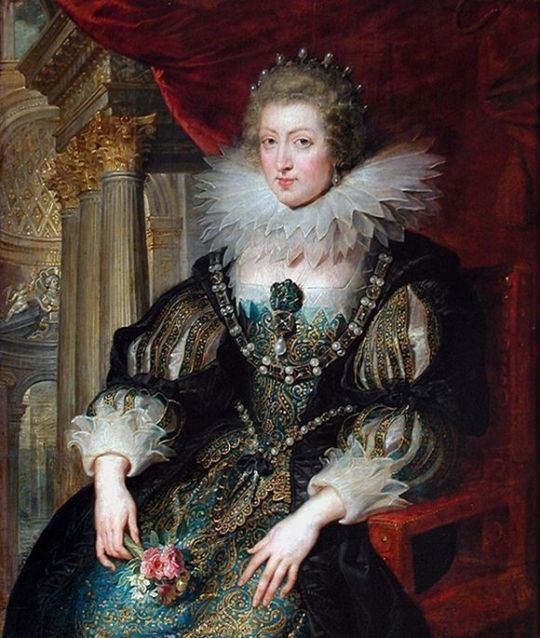
Te+Si Bureaucrat
The Te+Si function combination merges together Te's understanding of mechanical dynamics, with Si's understanding of discrete local contexts, producing an understanding of life as an assortment of discrete mechanical operations. Each of these operations requires tailored solutions to its own situation, giving rise to a multitude of separate protocols. This inclines the Te+Si towards a style of legalistic reasoning, whether the laws are man-made bureaucracies or the laws of nature. The Te+Si combination has a natural aptitude for scientific reasoning on one hand, but it also has an inclination towards over-systematizing things on the other.
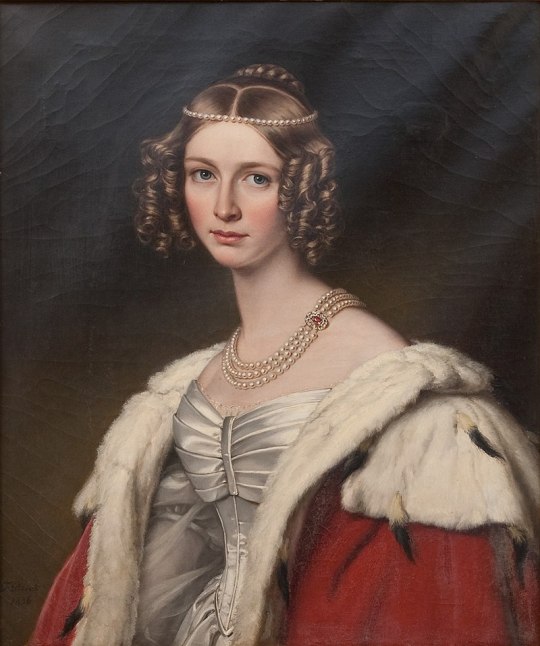
Fi+Ne Etherealist
The Fi+Ne function combination produces an experience where life is percieved by Ne impressionisitically and suspended from actuality, while Fi aims to embody its raw, uninhibited nature through those impressions. Fi carries an essential core it wishes to radiate out, but that core has no definite form of expression; only a spectral Ne range that takes many forms. This leads Fi+Ne to have an ethereal embodiment; felt as real, but ungraspable and beyond. When applied to creativity, this can produce a magical effect on one hand, or a nerdy quirkiness on the other.

Te+Ne Inventor
The Te+Ne function combination merges Te's mechanistic causality with Ne's imaginative potential, creating a dynamic, inventive cognition. This cognitive union combines logistical strategies with creative possibilities, creating a scientific yet unconventional approach to problem-solving. Outside of science, this approach also produces an inventive approach towards human interaction, leading to witty, off-the-wall humor. The Te+Ne combination can lead to a strong innovative spirit on one hand, or to a scatterbrained tinkerer on the other.
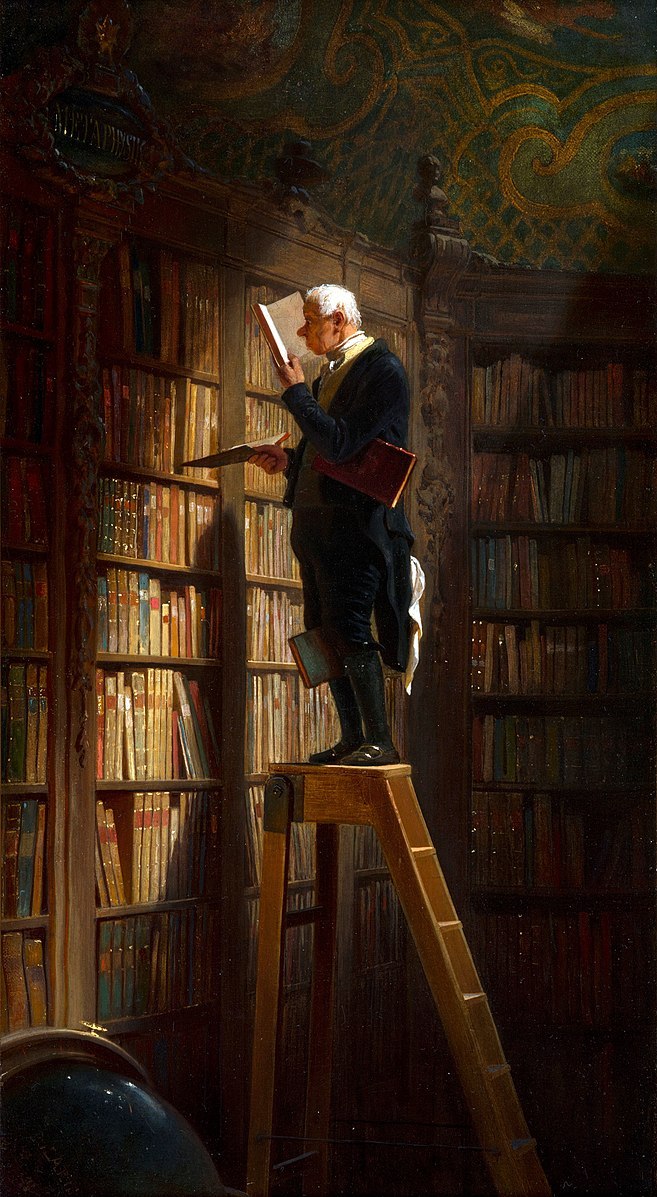
Fi+Si Druidist
The Fi+Si combination produces a spiritual approach, created by Si’s connection to discrete local details and Fi’s attunement to the animate energies embedded in those localities. What results is a method of self-reflection that grounds itself in the spiritual energies (Fi) of local beings or environments (Si). One example of this approach is found in the Druidist tradition, which holds a deep veneration for nature, seeing the natural world as a manifestation of the divine. The Fi+Si combination can lead towards a merging with the innate energies of local landscapes on one hand, or it can lead to a conservative technological retrogression on the other.
#Cognitive Typology#Function Quadrants#Delta Quadrant#Extroverted Thinking#Introverted Feeling#Extroverted Intuition#Introverted Sensing#ESTJ#INFP#ENFP#ISTJ#Bureaucrat#Etherealist#Inventor#Druidist
9 notes
·
View notes
Text
The Encyclopedia Natural Remedies
You'll discover the power of natural remedies for your healthover 300 ancient cures, natural healing and home remedies for over 60 common ailments. You’ll find out the remedies that the disaster doctors have used to nurse their patients back to full health…Without any of big pharma
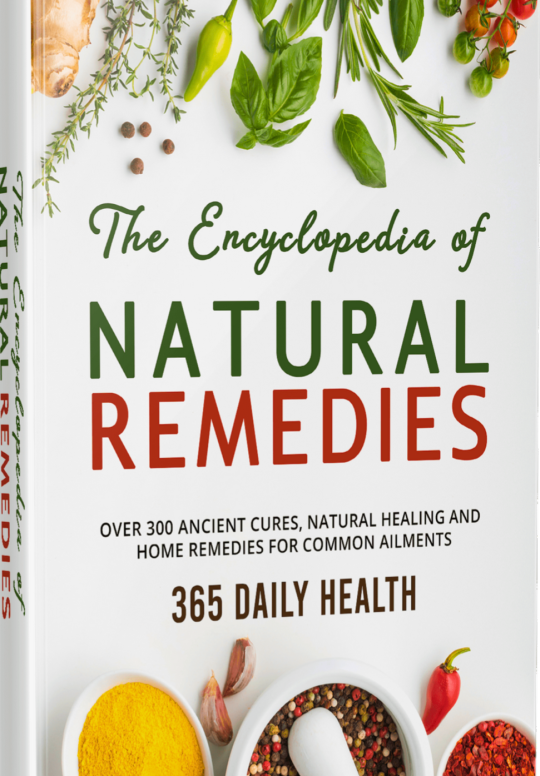
#HealthyLiving#Herbs#NatureCure#PlantMedicine#NaturalRemedies#HerbalMedicine#AlternativeMedicine#TraditionalMedicine#ComplementaryTherapy#EssentialOils#Wellness#Afflink
7 notes
·
View notes
Text
The Encyclopedia of Natural Remedies: Your One-Stop Guide to Better Health

The Encyclopedia of Natural Remedies is a comprehensive guide to the healing power of nature. This reference book covers a wide range of health conditions, from common ailments like colds and flu to more serious conditions like cancer and heart disease. The book is divided into chapters, each focusing on a specific health condition or topic, and providing detailed information on the causes, symptoms, and natural treatments for each condition.
One of the main strengths of the Encyclopedia of Natural Remedies is its focus on natural treatments. Unlike conventional medicine, which often relies on drugs and surgery, natural remedies focus on using the healing power of plants, minerals, and other natural substances to promote health and well-being. The book includes a wide range of natural remedies, from herbal remedies and supplements to dietary changes and lifestyle modifications.
Another important aspect of the Encyclopedia of Natural Remedies is its emphasis on prevention. The book provides detailed information on how to prevent health conditions from developing in the first place, by making simple changes to your diet, lifestyle, and environment. This can include tips on eating a healthy diet, getting regular exercise, managing stress, and avoiding environmental toxins.
One of the most interesting sections in the Encyclopedia of Natural Remedies is the one dedicated to Mental and Emotional Health. It covers wide variety of topics like anxiety, depression, addiction, stress and many more, outlining the natural remedies, practices that can be beneficial for the condition, like herbal remedy, aromatherapy, mindfulness and yoga.
The Encyclopedia of Natural Remedies also provides detailed information on how to use natural remedies safely and effectively. It includes guidelines on dosages, potential interactions with other medications, and precautions to take when using natural remedies. This ensures that you are using natural remedies in a way that is safe and effective.
In conclusion, the Encyclopedia of Natural Remedies is a valuable resource for anyone interested in natural health and healing. It provides detailed information on a wide range of health conditions and offers a wealth of natural remedies and prevention strategies that can be used to promote good health and well-being. Whether you're looking to treat a specific health condition, or simply want to improve your overall health and well-being, this book is a great resource to have on hand.
Click here to get your hands on The Encyclopedia of Natural Remedies: Your One-Stop Guide to Better Health
10 notes
·
View notes
Video
youtube
The Encyclopedia of Natural Remedies Review - Watch This Before You Buy!
2 notes
·
View notes